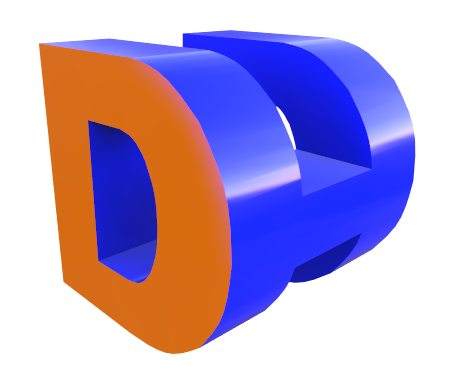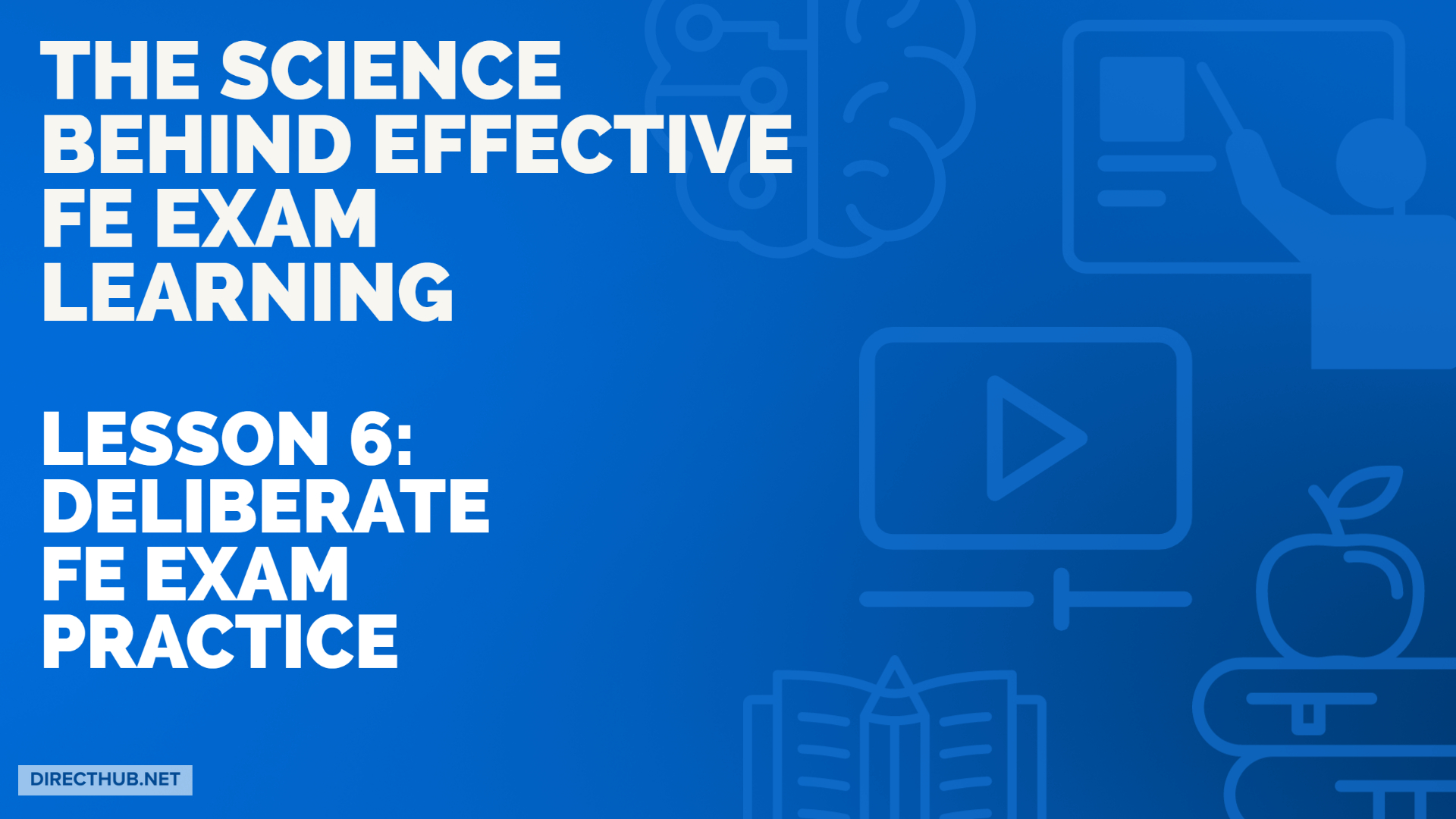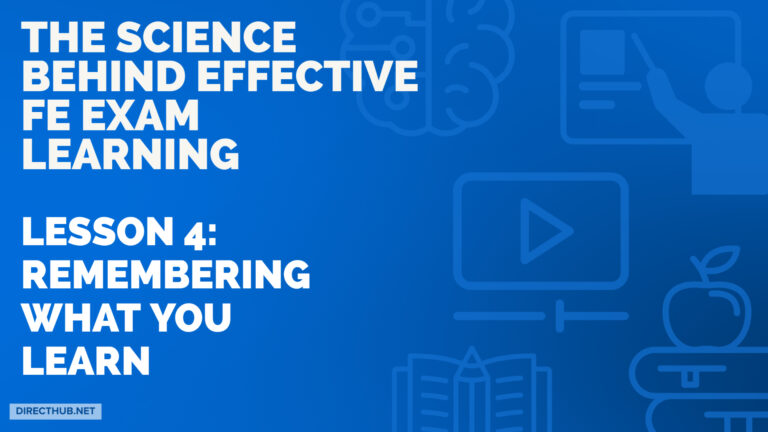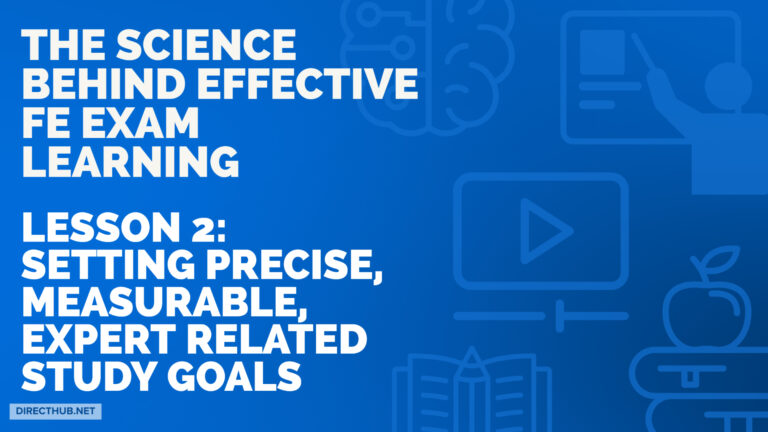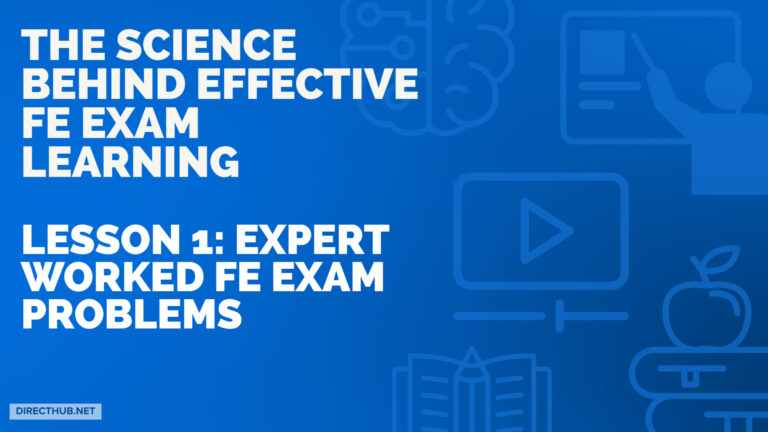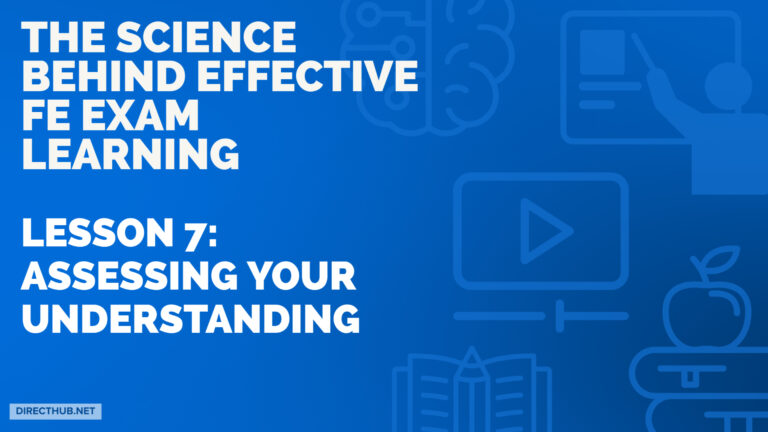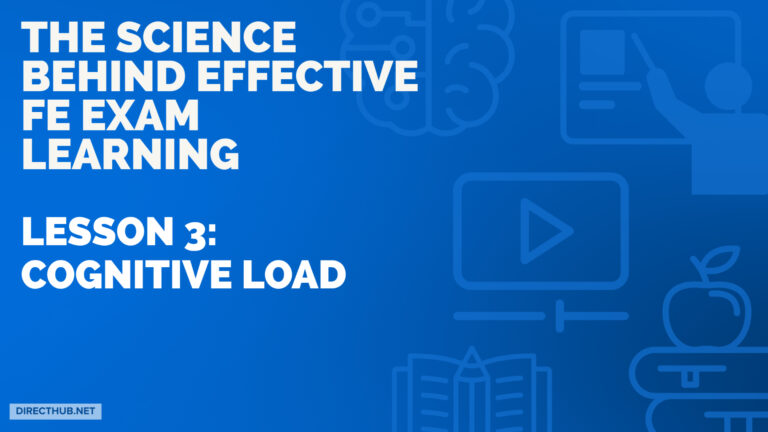Lesson 6: Deliberate FE exam Practice
In the past lessons, we talked a lot about how to acquire knowledge. But what about acquiring the right skills when it comes to this FE exam? For a certain FE problem, I might know what I’m given, and apply the right equation to solve the problem, but how the heck can I get better at solving a variety of FE type problems under exam like conditions?
Well, practice. Generally speaking, you will get better at what you practice. The trick is figuring out whether your practice is the RIGHT KIND OF PRACTICE when it comes to this FE exam.
Deliberate Practice
A psychologist by the name of Anders Ericsson began his reach with this question: What makes an expert? What makes them the best in the world? What makes them the best at what they do?
His conclusion: NOT TALENT – but a special kind of practice worded as “deliberate practice”.
A lot of the time, we do not practice wisely. I can remember practicing how to shoot soccer freekicks in high school from the same position over and over again. But practicing what I already knew how to do is like not practicing at all. I wasn’t really improving my skills; I was just repeating the same behavior by kicking the ball from the same position.
This is no different when it comes to practicing for the FE exam. You should not practice the same kinds of problems over and over again. Solving the same or very similar problem time after time will not improve your skills and overall understanding. You need to get your hands on and practice a variety of FE practice problems to improve your skills.
This brings us to deliberate practice….
Deliberate practice has several specific features that you can begin to think about as you’re practicing for your FE exam:
- The practice targets an expert skill (examples: applying FE handbook, applying Calculator, Dimensional analysis, unit conversions, etc, etc.)
- The practice is challenging for you to do (example: solving 10 timed practice problems with a goal of being below the 3-minute mark for each question)
- You get appropriate feedback about your performance (examples: feedback from instructor, well written step by step solutions, clear and concise video solutions,)
- You reflect and evaluate the feedback (examples: asking why you missed a question, noting down any concepts you didn’t understand)
- You get more opportunities to practice (example: solving hundreds if not thousands of additional FE practice problems)
Deliberate practice is a cycle where you are trying to perform by making A LOT of mistakes, learning which mistakes you made, and improving your performance on the next try. Deliberate practice has predictable results: It’s usually demanding and exhausting. You’re pushing yourself. You’re not going to perform perfectly and that’s ok.
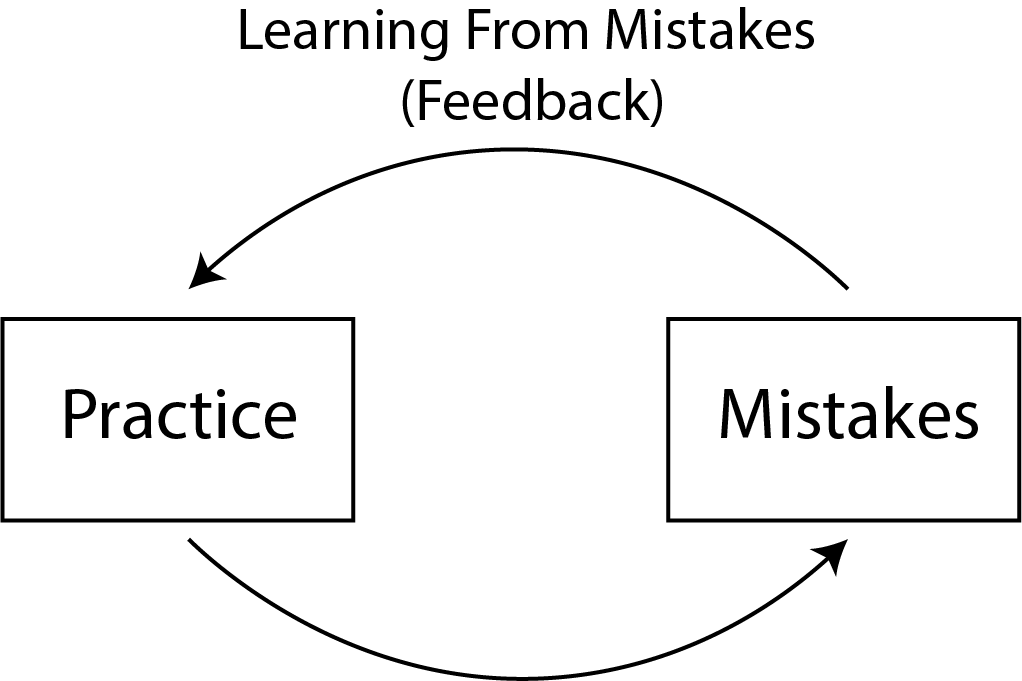
Feedback
Feedback is the most important component of deliberate practice. Feedback is any information you get about your performance.
Positive feedback feels good (“You got this problem right – don’t change a thing!”). This boosts your confidence but usually it doesn’t help you learn because it doesn’t identify anything for you to change.
Negative feedback (“You got stuck, you don’t know which step to apply next, you don’t know how to use the equation). This tells you did something “wrong” – which leads to learning.
Build your FE exam study structure around feedback. Without the feedback you’re getting by practicing and making mistakes when solving hundreds of FE problems, you’re not doing that much learning. Just make sure this feedback is related to learning important skills you will apply on your FE exam.
The best kind of feedback has three components. It is specific, timely, and understandable.
Compare: “You got this wrong” (not specific) to “You got this problem wrong because you did not understand how to convert classic pressure units into head pressure units” (specific).
Vague feedback makes it difficult for you to know in what areas you need to improve and how to improve.
Timely feedback arrives when you still remember what you did. If you compare feedback on a practice test submitted and reviewed on the same day versus feedback on a practice test submitted and reviewed one week later. In this case, the immediate feedback is more timely.
Feedback is only understandable when you are interpreting the feedback effectively. Imagine you’re trying to improve your performance leading up to your FE exam date. The solutions to the problems you got wrong provide one source of feedback, but going over the written solutions then attempting to resolve the problem by recreating your own solution would make your practice more effective.
How Can These Ideas Help with your FE exam prep?
It won’t be perfect but use the ideas behind deliberate practice as a checklist when learning material for your FE exam. Are you targeting a specific skill that’s likely to be tested on the FE exam? Is it challenging for you? Is there appropriate feedback? Are you making time to reflect on how you can improve?
Seek out expert feedback. Make use of professors, instructors, and tutors. Ask questions on forums. Form a study group. You will need to focus on seeking specific feedback that will help you improve instead of vague or negatively biased “positive feedback”.
Develop your own standards for learning FE exam topics then you can use informative feedback you get from video solutions. For example, if you’re learning how to solve Fluid Mechanics problems using the Bernoulli Equation, you might test yourself by solving the next practice problem using the tools you learned from the video. You’re challenging yourself and creating a higher standard.
Effective FE exam learners tend to interpret feedback productively. When you receive negative feedback, it usually doesn’t feel good. It’s easy to take it personally, as a characteristic of your innate abilities.
Do this instead: Attribute any negative feedback to the performance—think about it as a strategy you can learn from. It’s a strategy you can use to solve a problem and how to tackle hundreds of similar problems. You are never really “wrong” and it’s never about your innate abilities. This way, you can focus on what you can do better next time.
Check out the summary video below discussing deliberate FE exam practice!

